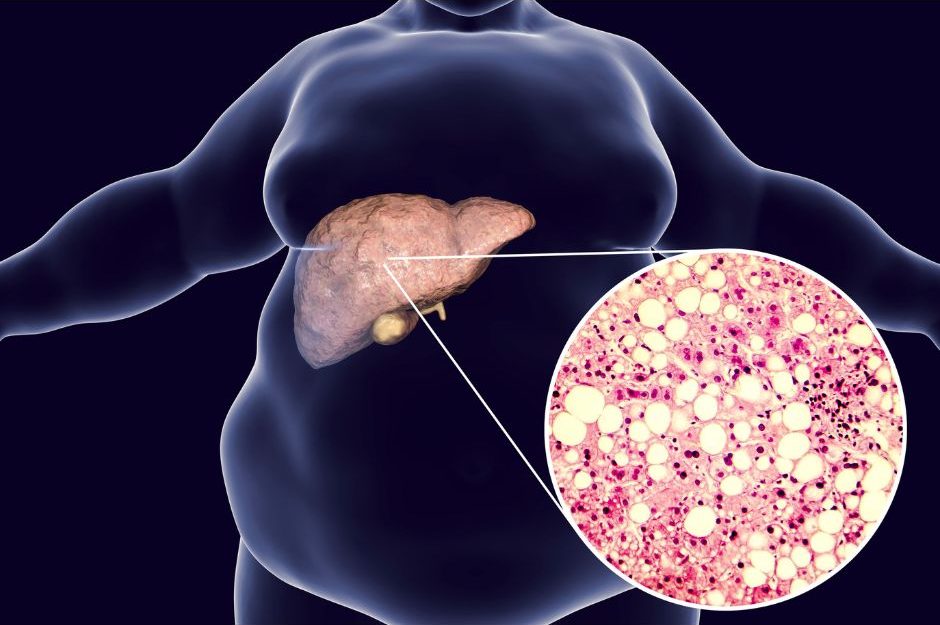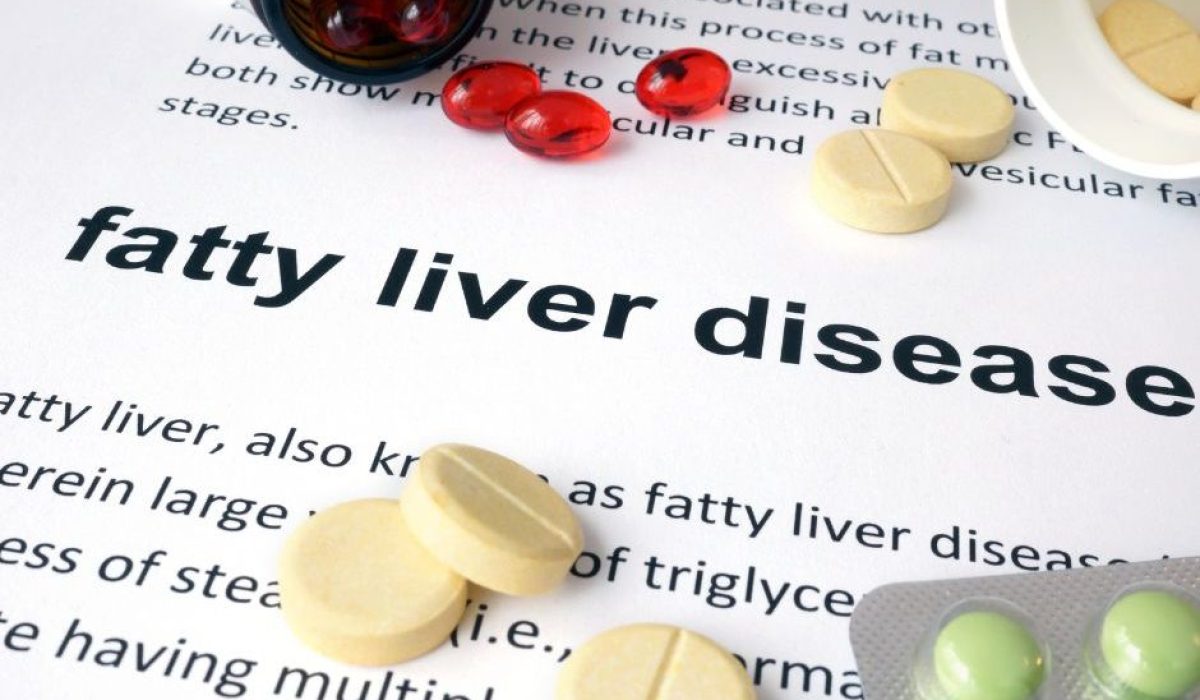Reverse non-alcoholic fatty liver disease (NAFLD) naturally
Understanding Non-Alcoholic Fatty Liver Disease (NAFLD)
Non-Alcoholic Fatty Liver Disease (NAFLD) is a common condition characterized by the accumulation of excess fat in the liver of people who drink little to no alcohol. It affects about 25% of the global population and is closely associated with obesity, type 2 diabetes, and metabolic syndrome.
NAFLD exists on a spectrum, ranging from simple fatty liver (steatosis) to non-alcoholic steatohepatitis (NASH), which involves liver inflammation and can progress to fibrosis, cirrhosis, and even liver cancer. The good news is that NAFLD, especially in its early stages, is often reversible through lifestyle modifications.
Key points about NAFLD:
- It’s often asymptomatic in the early stages
- Risk factors include obesity, insulin resistance, high blood sugar, and high triglycerides
- Diagnosis typically involves blood tests, imaging studies, and sometimes liver biopsy
- Left untreated, it can lead to serious liver complications.
Fructose Contribution to Weight Gain and Fatty Liver
Fructose, a type of sugar commonly found in many processed foods and sweetened beverages, plays a significant role in weight gain and the development of fatty liver through several key mechanisms:
1. De novo lipogenesis (DNL): Fructose is rapidly metabolized in the liver, stimulating the process of converting carbohydrates to fat. This leads to increased fat production and accumulation in the liver.
2. ATP depletion: The rapid metabolism of fructose in the liver depletes ATP, leading to increased uric acid production and oxidative stress. This promotes liver inflammation and fat accumulation.
3. Increased caloric intake: Unlike glucose, fructose doesn’t effectively stimulate insulin and leptin production, potentially leading to reduced satiety signals and increased food intake.
4. Reduced physical activity: Some studies suggest that fructose consumption may lead to decreased physical activity compared to glucose, contributing to weight gain.
5. Altered gut microbiome: Fructose consumption can change the composition of gut bacteria, potentially contributing to metabolic disturbances.
6. Insulin resistance: Chronic fructose consumption can lead to insulin resistance, which promotes fat storage and impairs glucose metabolism.
7. Increased visceral fat: Fructose consumption has been associated with greater accumulation of visceral fat, which is metabolically harmful.
8. Impaired fat oxidation: Fructose may reduce the body’s ability to burn fat for energy, favoring fat storage instead.
9. Increased appetite: Some research suggests fructose may interfere with appetite regulation, potentially leading to increased food intake.
10. Lipid profile changes: Fructose consumption can lead to increased production of very low-density lipoproteins (VLDL) in the liver, contributing to dyslipidemia.
These mechanisms work together to promote weight gain and fat accumulation in the liver, potentially leading to non-alcoholic fatty liver disease (NAFLD) and other metabolic disorders. To protect your liver health and maintain a healthy weight, limit your intake of processed foods and sweetened beverages high in fructose, focusing instead on whole, nutrient-dense foods as part of a balanced diet.

Now, let’s explore the steps you can take to reverse NAFLD:
1. Achieve Gradual Weight Loss
Losing excess weight is crucial for reversing NAFLD. Aim for a gradual, sustainable weight loss of 7-10% of your body weight over 6-12 months. This moderate approach is more likely to lead to long-term success and health improvements compared to rapid, drastic weight loss.
2. Increase Physical Activity
Aim for at least 150 minutes of moderate-intensity aerobic exercise per week. Start slowly and gradually increase your activity level. Incorporate strength training exercises 2-3 times per week. Consider high-intensity interval training (HIIT) for more efficient workouts.
3. Adopt a Nutrient-Dense, Whole Foods Diet
Adopting a holistic approach to diet and nutrition is key to improving overall health and managing weight effectively. Start by prioritising whole, nutrient-dense foods over processed options, naturally incorporating a variety of vegetables, fruits, high-quality proteins, and healthy fats into your meals.
Embrace mindful eating practices by tuning into your body’s hunger and fullness cues, savouring each bite, and enjoying meals without distractions. This fosters a healthier relationship with food and can prevent overeating.
Consider exploring meal timing strategies like time-restricted eating or intermittent fasting, which may help regulate appetite and metabolism for some individuals.
Ensure you’re consuming adequate protein, as it plays a crucial role in preserving muscle mass, increasing satiety, and potentially boosting metabolism. Remember, there’s no one-size-fits-all solution; experiment with different eating patterns to discover what works best for you.
Focus on building sustainable, healthy habits over time rather than making drastic changes. Pay attention to lifestyle factors beyond food, such as quality sleep and stress management, as these significantly impact overall health and weight. By adopting this comprehensive approach, you’re more likely to achieve lasting improvements in your health and well-being, moving beyond the limitations of simple calorie counting or restrictive diets.
Incorporating probiotic-rich foods into your diet can be both delicious and beneficial for your gut health. Some excellent options include yoghurt with live active cultures, especially Greek yoghurt or kefir, which is a fermented milk drink similar to drinkable yoghurt. Fermented vegetables like sauerkraut and kimchi are packed with probiotics; just be sure to choose unpasteurized versions for maximum benefits. Kombucha, a fermented tea beverage, has gained popularity as a probiotic drink. Traditional fermented foods from various cultures, such as miso and tempeh from Japan, and natto from Korea, are also great choices.
Don’t forget about naturally fermented pickles (in salt water, not vinegar), certain aged cheeses like Gouda and cheddar, and raw, unfiltered apple cider vinegar with “the mother.” Other options include kvass (a Slavic fermented rye bread drink), traditional buttermilk, and some varieties of olives. When adding these foods to your diet, start slowly and gradually increase your intake to allow your digestive system to adjust. Remember, while these foods are generally healthy, they should be part of a balanced diet.
Focus on consuming a variety of whole, unprocessed foods:
- Choose high-quality proteins like grass-fed meats, organ meats, wild-caught fish, and pasture-raised eggs.
- Eliminate seed oils like sunflower oil, rapeseed and canola oil. Include healthy fats from sources like avocados, coconut oil, grass-fed butter, tallow, olive oil and omega-3 fish oil.
- Enjoy fruits in moderation, preferring low-sugar options
- Opt for Avocados, tomatoes, bell peppers, cucumbers, eggplant, squash (including zucchini and pumpkin), and olives. These are all botanically classified as fruits and foods generally high in fibre, contain beneficial enzymes, or have properties that can aid digestion. Including a variety of these in your diet can contribute to better digestive health
- Properly prepared grains if tolerated (soaking, sprouting, or fermenting to break down anti-nutrients, improve digestibility, and enhance nutrient absorption)
3. Manage Stress and Improve Sleep:
Chronic stress and poor sleep can significantly impact weight and liver health. Incorporate stress-reduction techniques and prioritize getting 7-9 hours of quality sleep per night.
4. Stay Hydrated:
Drink plenty of water throughout the day. Cucumber and other high-water content foods can contribute to hydration. Also drinking up to 3 cups of coffee per day may help reduce liver inflammation and fat buildup.
5. Drink apple cider vinegar:
Studies suggest apple cider may help regulate blood sugar levels, aid in weight management, lower cholesterol and triglyceride levels, and possess antimicrobial properties. Some research indicates ACV may help with digestion, blood pressure regulation, and provide antioxidant effects.
Specifically for fatty liver, animal studies have shown promising results. A study on rats with non-alcoholic fatty liver disease (NAFLD) found that ACV consumption reduced liver enzymes ALT and AST, decreased liver fat accumulation, and reduced liver inflammation. The proposed mechanisms include inhibition of fat synthesis enzymes, increased excretion of bile and fecal acids, and weight loss. A clinical trial in humans with type 2 diabetes found that consuming ACV daily for 8 weeks led to improvements in blood glucose levels, reductions in cholesterol and triglycerides, and decreases in BMI.
These effects could potentially benefit fatty liver by reducing fat accumulation, improving insulin sensitivity, lowering blood sugar and lipid levels, promoting weight loss, and providing antioxidant effects. However, it’s important to note that while ACV shows promise, much of the research is preliminary or based on small studies. More robust, long-term human trials are needed to confirm many of these potential benefits, especially for fatty liver disease. ACV should not be considered a replacement for medical treatment or a healthy lifestyle. Always consult with a healthcare provider before using ACV for health purposes, especially if you have existing health conditions or are taking medications.
Non-Alcoholic Fatty Liver Disease (NAFLD) is a complex condition affecting many worldwide. This post has explored its causes, including the role of excessive fructose consumption, and potential management strategies.
Remember, reversing NAFLD isn’t about quick fixes, but adopting a holistic, sustainable approach to health. Every individual’s journey is unique, so it’s crucial to work with healthcare professionals to find what works best for you.
By making informed, conscious decisions about diet and lifestyle, we can take meaningful steps towards improving liver health and overall well-being. Celebrate your progress, be patient with yourself, and remember that every positive choice contributes to your health journey.

